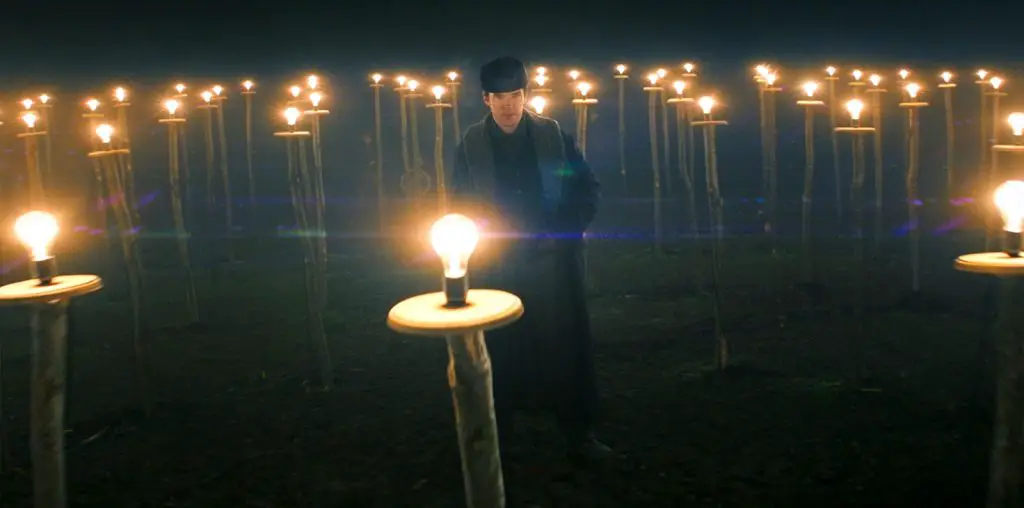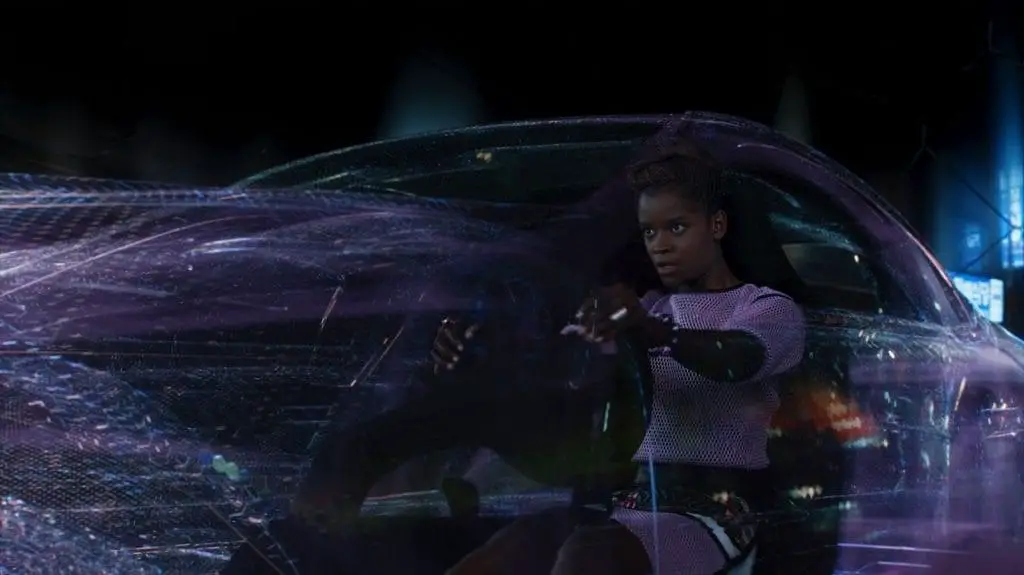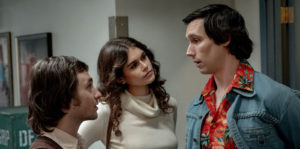
What works about Saturday Night is the peek inside the lives of those people at that time and place — they were just overflowing with life — young, confident, high, h***y, stupid, and profound. They were creating something new for a younger generation while grappling with an old guard who didn’t understand it. This is personified by Milton Berle (delightfully portrayed by J. K. Simmons) wandering the set like he owns the place, literally pulling his c**k out trying to get into a dick-measuring contest with Chevy Chase after he hits on his fiancee. I seriously doubt Berle was on set minutes before the first show, but the point is he’s a metaphor. He’s a stand-in for the suits who wanted old-school hosts like Rich Little or who insisted on the older George Coe being in the cast. It is also a bit of an in-joke because Berle was infamously banned from the show after being the worst host and a terrible person on set.
Saturday Night pulls many shenanigans like this — to tell a greater story about the struggles facing the show in its infancy, it shoehorns many things into the hour and a half before airing that don’t belong. The reality is that in those days, the show was finding its voice and initially had fewer of the comedy sketches it is known for today. It had more musical numbers, stand-up bits, short films by Albert Brooks, and even Muppets. These are alluded to but aren’t portrayed, which is the right call. Instead of the literal truth, Saturday Night is more trying to capture our distorted memory of these people and that first season. The conceit the film uses to cram in as many classic bits as it can is that we see performers rehearsing material that won’t make it to air until episodes in the future. Or they use a classic line in another context. This mostly works, but sometimes, these anachronistic winks fall flat, like when John Belushi and Gilda Radner are paired up to wistfully reflect on being present in the moment, which is a ham-fisted way of referencing their impending deaths.
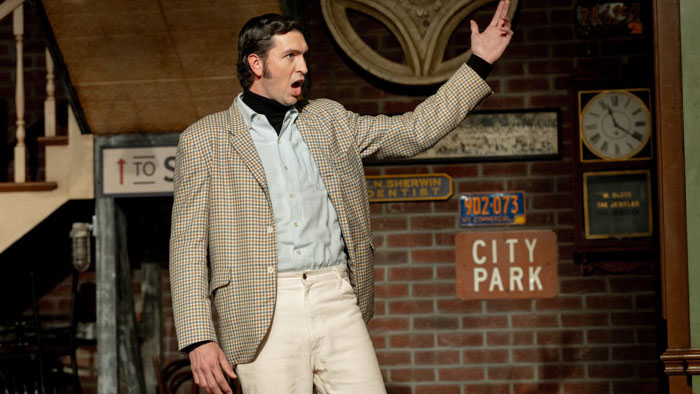
Andy Kaufman (Nicholas Braun) in SATURDAY NIGHT.
“…they were just overflowing with life — young, confident, high, h***y, stupid, and profound.”
The idea of Lorne Michaels wandering around pre-show, putting out fires, and trying to wrangle the chaos is indeed a clever way to frame the movie. It gives the film a ticking clock, some urgency, and a chance to showcase an extraordinary ensemble. But where the film fails is in its attempts to artificially manufacture drama. There was no need to flip reality on its head and pretend that NBC was rooting against the show. But there’s another casualty — in artificially playing up the idea that this first show barely was pulled off, the film undercuts some of the genius of Lorne Michaels, one of the greatest producers of all time. Sure, there were last-minute snafus, but he really had so much more under control than he let on.
One other minor failing is that Saturday Night leans too much in the direction of trying to cram in everything. This may please fans of the show (like me) who love easter eggs, but do we really need to see Paul Shaffer (Paul Rust), Billy Crystal, or Al Franken (Taylor Gray) in multiple scenes that essentially go nowhere just to name-check them? That’s fun, but it also takes away from the core characters. Without enough screen time, the main cast is reduced to almost caricatures of these people, even if they are fun ones.
Despite its flaws, Saturday Night captures the spirit of the early days of SNL, even if it has to take some liberties with the truth to do it. The result is a fast-paced whirlwind tour of a seminal moment in American culture that captures some of the fun and energy of that barely-contained chaos. Some have likened Saturday Night to a Robert Altman film. Part of that is true—this is a large ensemble film that is less driven by plot and more by the fascination of watching great actors be together in a scene. But Saturday Night is less meandering than an Altman film. With serious editing, a hand-held, almost real-time feeling, and stakes, there is an urgency to Saturday Night that keeps it moving and engaging, even when minor bits here or there don’t work. This isn’t a lazy river; it’s a roller coaster, and one hell of a ride.
Saturday Night screened at the 2024 Toronto International Film Festival. It will open for limited theatrical release in the US on September 27 before a wide release on October 11.
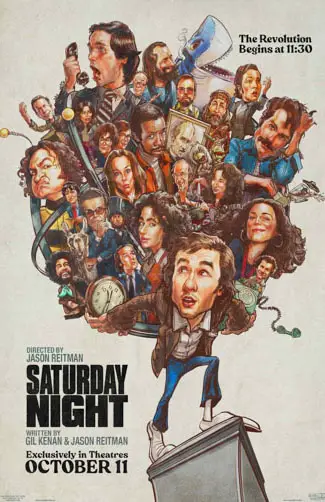
"…a fast-paced whirlwind tour of a seminal moment in American culture."

